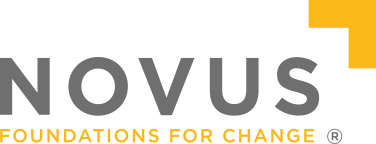The Link Between Dyslexia, Prison Education and Successful Rehabilitation
Adult Provision

At Novus, we believe that education has the power to change lives. In this article, we’ll explore the link between dyslexia, neurodiverse prison education, and successful rehabilitation in the UK.
Dyslexia, a common learning difficulty that affects reading, writing and spelling, is estimated to be three to four times more common in prisons than in the general population. Many people entering custody have faced challenges in education throughout their lives, often without being properly supported or diagnosed. These early experiences can make it harder to access opportunities later on and can have a lasting impact on confidence and achievement.
Here, we’ll look at why so many people in prison have dyslexia, how a lack of early support contributes to this, and how tailored education plans can transform lives by improving literacy, increasing employability and reducing reoffending rates. Investing in prison education that addresses dyslexia isn’t just about individual learners; it’s about creating a fairer and more effective rehabilitation system for everyone.
The percentage of prisoners with dyslexia in the UK
Research suggests that around 30% of people in prison have dyslexia, compared to roughly 10% in the general population. When we consider broader literacy and numeracy challenges, that figure rises even higher, with up to 60% of prisoners struggling with basic skills.
For many of these individuals, the challenges began long before their sentence. In mainstream education, dyslexia can go unnoticed, especially when learners develop coping strategies or feel unable to ask for help. Limited awareness, a lack of early screening, and inconsistent access to learning support mean that many young people with dyslexia leave school without the literacy and numeracy skills they need.
When people who have never been diagnosed or supported arrive in prison, they often carry the effects of these early educational gaps. Low confidence, frustration with learning, and negative experiences at school can make it difficult to re-engage with education later in life. Without targeted support, these individuals can miss the chance to gain new skills, qualifications and a sense of achievement that could support their rehabilitation.
Dyslexia and prison education
At Novus, we know that education can be a turning point. Prison education provides an opportunity to reach learners who may never have had the right support before. By identifying and addressing dyslexia during a sentence, we can help learners build skills, confidence and self-belief for the first time.
Our teams use specialist assessments and tailored learning plans to ensure that each learner can access education in a way that suits their individual needs. This includes offering alternative learning materials, using assistive technologies such as text-to-speech software, and providing one-to-one support from trained tutors.
We also deliver vocational training and employability programmes designed to give learners practical skills and the confidence to use them. For many, receiving a dyslexia diagnosis for the first time in prison can be life-changing. It helps them understand their learning style, recognise their strengths and realise that with the right support, they can achieve more than they thought possible.
Early identification and intervention make a real difference. When new learners are screened for dyslexia and other neurodiverse conditions, they can start their education journey on the right footing, supported by approaches that help them succeed.
The impact of neurodiverse learning on rehabilitation
Addressing dyslexia and other neurodiverse needs within prison education has far-reaching benefits for both individuals and society. When learners receive the right support, we see improvements in:
- Literacy and communication skills – enabling learners to read, write and express themselves more effectively
- Employability – building confidence and qualifications that open doors to jobs after release
- Reoffending rates – with improved skills and opportunities, learners are less likely to reoffend
- Self-esteem and motivation – understanding their learning difference often helps individuals to see their strengths
- Community safety and cohesion – better rehabilitation outcomes lead to safer, stronger communities
Learner success story
One of our learners at HMP Low Newton, who was diagnosed with dyslexia while in custody, had struggled with education her entire life. Through Novus’ tailored learning support, she was able to improve her reading and gain a vocational qualification in hairdressing. Her story highlights how individualised support can transform lives.
Supporting dyslexic learners in prison education
When neurodiverse learners receive the right support, everyone benefits. Targeted education helps individuals build the confidence and skills they need to find work after release, reducing the likelihood of returning to prison.
At Novus, we’re passionate about creating inclusive, supportive prison education. We’re advocating for better screening, tailored learning plans for dyslexic learners, and greater investment in specialist resources. Our goal is to make sure every learner, no matter their background or learning difference, has the opportunity to succeed.


